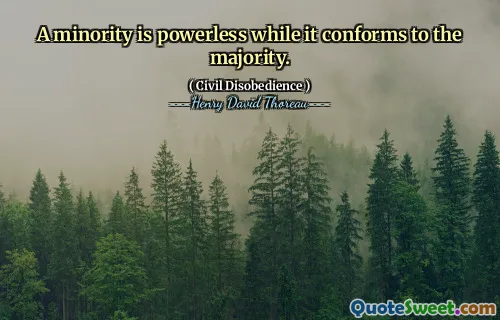
Government is at best but an expedient; but most governments are usually, and all governments are sometimes, inexpedient.
Henry David Thoreau's observation sheds light on the inherently pragmatic nature of government and its often imperfect execution. Governments are tools designed to serve societal order, justice, and the collective good. However, as Thoreau points out, their efficiency and morality are not guaranteed; instead, they are subject to the circumstances, the motivations of those in power, and the societal context. This perspective invites a critical view of authority, encouraging individuals to question the legitimacy and effectiveness of governing bodies rather than accepting them as infallible sources of order. The concept of government being an expedient emphasizes its role as a means to an end. Nevertheless, the acknowledgment that all governments are sometimes inexpedient underscores the reality that they can cause harm, be inefficient, or infringe upon individual liberties. Recognizing this duality invites a deeper dialogue about the purposes and limits of governmental power. It also advocates for personal responsibility and active engagement from citizens in holding governments accountable. The quote compels us to see government not as an ultimate authority but as a human institution that can be improved or challenged when it falls short. It's a reminder of the importance of balancing the necessity of governance with vigilance against its potential excesses or shortcomings. Ultimately, it underscores the importance of moral courage and civil disobedience when governments act unjustly, echoing Thoreau's advocacy for the individual's moral duty over blind obedience to state authority.











